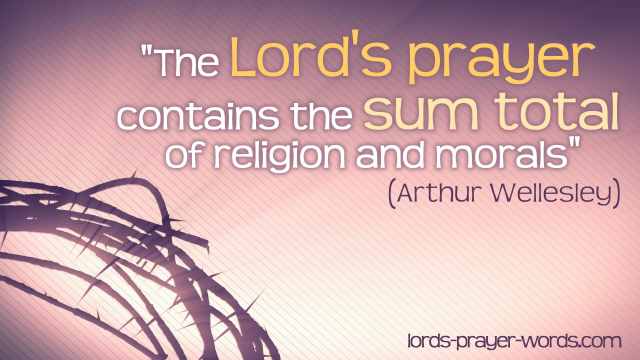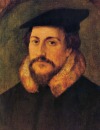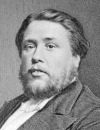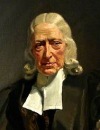The Lord's Prayer
interpretation by Alexander Maclaren - introduction
HOW TO PRAY
‘And it came to pass, that, as He was praying in a certain place, when He ceased, one of His disciples said unto Him, Lord, teach us to pray, as John also taught His disciples. 2. And He said unto them, When ye pray, say, Our Father which art in heaven, Hallowed be Thy name. Thy kingdom come. Thy will be done, as in heaven, so in earth. 3. Give us day by day our daily bread. 4. And forgive us our sins; for we also forgive every one that is indebted to us. And lead us not into temptation; but deliver us from evil. 5. And He said unto them, Which of you shall have a friend, and shall go unto him at midnight, and say unto him, Friend, lend me three loaves; 6. For a friend of mine in his journey is come to me, and I have nothing to set before him? 7. And he from within shall answer and say, Trouble me not: the door is now shut, and my children are with me in bed; I cannot rise and give thee. 8. I say unto you, Though he will not rise and give him, because he is his friend, yet because of his importunity he will rise and give him as many as he needeth. 9. And I say unto you, Ask, and it shall be given to you; seek, and ye shall find; knock, and it shall be opened unto you. 10. For every one that asketh receiveth; and he that seeketh findeth; and to him that knocketh it shall be opened. 11. If a son shall ask bread of any of you that is a father, will he give him a stone? or if he ask a fish, will he for a fish give him a serpent? 12. Or if he shall ask an egg, will he offer him a scorpion? 13. If ye then, being evil, know how to give good gifts unto your children: how much more shall your heavenly Father give the Holy Spirit to them that ask Him!—LUKE xi. 1-13.
Christ’s praying fired the disciples with desire to pray like Him. There must have been something of absorption and blessedness in His communion with the Father which struck them with awe and longing, and which they would fain repeat. Do our prayers move any to taste the devotion and joy which breathe through them? But low conceptions mingled with high desires in their request. They think that if He will give them a form, that will be enough; and they wish to be as well off as John’s disciples, whose relation to their master seems to them parallel with theirs to Jesus.
Our Lord’s answer meets and transcends their wish. He does give them a model prayer, and He adds encouragements to pray which inculcate confidence and persistence. The passage, then, falls into two parts—the pattern prayer (vs. 2-4), and the spirit of prayer as enforced by some encouragements (vs. 5-13). The material is so rich that we can but gather the surface wealth. Deep mines must lie unexplored here.
Alexander Maclaren (1826-1910) - Expositions of Holy Scripture: Luke

About the writers here
 John Calvin (1507-1564) was part of the reformation movement of the sixteenth century. His most notable theological stance is the belief that God is sovereign in the matters of salvation and election.
John Calvin (1507-1564) was part of the reformation movement of the sixteenth century. His most notable theological stance is the belief that God is sovereign in the matters of salvation and election.
Alexander Maclaren (1826-1910) was a English Baptist minister. He is most famous for his expository style, drawing on examples from life and nature to develop biblical truths. The commentaries in this section are taken from his writings on the version of the Lord's prayer in Luke's Gospel.
 Charles Haddon Spurgeon (1834-92) is one of the most famous preachers of the nineteenth century. The two sermons found in this section record some fascinating insights into the Lord's prayer.
Charles Haddon Spurgeon (1834-92) is one of the most famous preachers of the nineteenth century. The two sermons found in this section record some fascinating insights into the Lord's prayer.
 John Wesley (born 1703, died aged 87 in 1791) is the founder of the modern day Methodist movement. His most famous theological insight is "Christian Perfection", a belief that the love of God can reign supreme in the believers heart.
John Wesley (born 1703, died aged 87 in 1791) is the founder of the modern day Methodist movement. His most famous theological insight is "Christian Perfection", a belief that the love of God can reign supreme in the believers heart.
find out more about the Lord's Prayer in our Line-by-line commentary section
